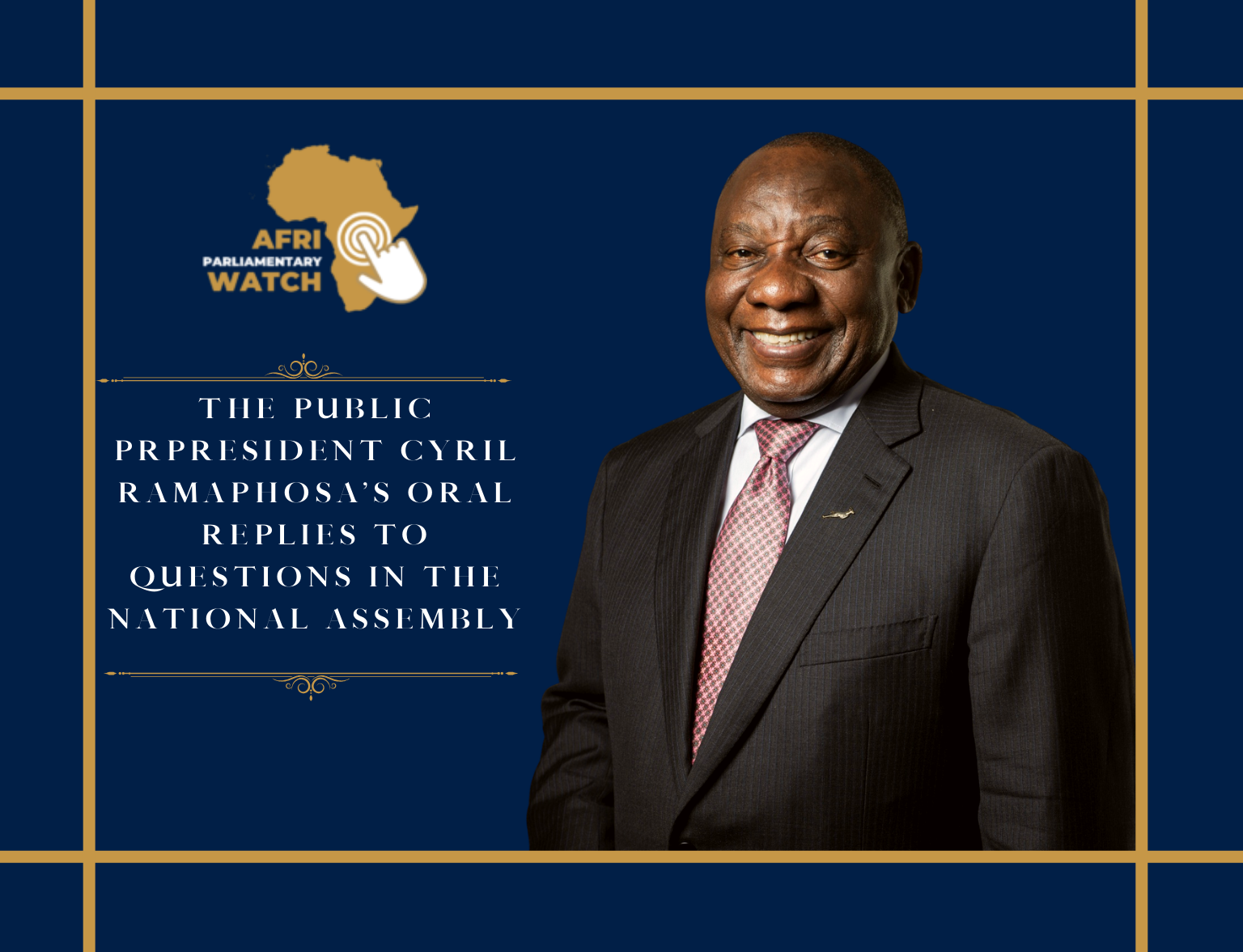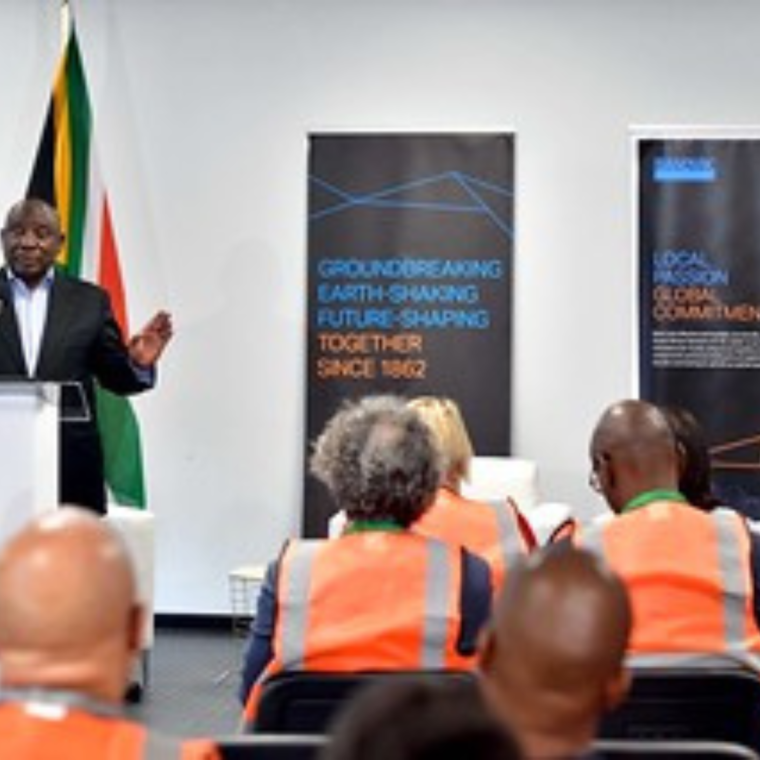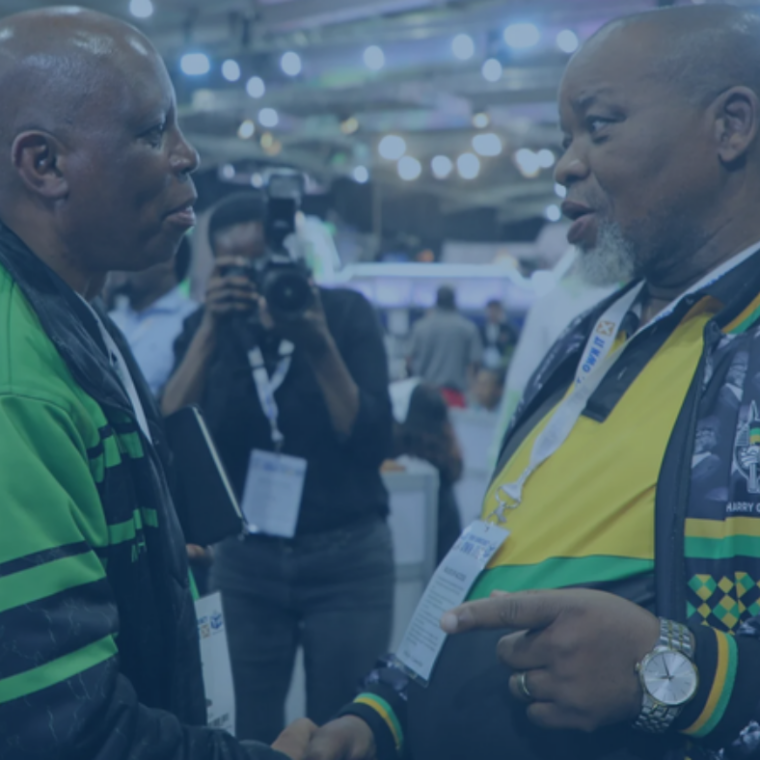PROGRESS IN IMPLEMENTATION OF LIFESTYLE AUDITS TO ADVANCE TRANSPARENCY AND ACCOUNTABILITY WITHIN AN ETHICAL STATE
Honourable Members,
Lifestyle audits of public servants have been compulsory since 2021. As at March 2023, over 11,000 public servants in national government have undergone lifestyle audits.
The lifestyle audit process for the Members of the Executive is spearheaded by the Office of the Director-General in the Presidency and the Secretary of the Cabinet. The process was institutionally initiated towards the end of 2022.
Earlier this year I sent letters to the Deputy President, Ministers and Deputy Ministers requesting their written consent to the process to ensure that the information is obtained in a legitimate and legal manner. I received the same letter signed by the Director-General and Secretary of the Cabinet.
The Members of the Executive, including myself, have submitted consent forms for the nationally-driven process of lifestyle audits.
The implementation of the lifestyle audits has been delayed by the change of the service provider.
It is anticipated that this project will be concluded by the end of this financial year.
I thank you.
BRICS PARTNERSHIPS BOLSTER ECONOMIC RECONSTRUCTION AND RECOVERY IN SOUTH AFRICA
Honourable Members,
South Africa has experienced significant benefits through its association with the BRICS grouping.
South Africa uses its BRICS membership to improve investment, trade, tourism, capacity building, skills and technological capabilities.
Strengthening economic and financial ties between BRICS countries is one of the key pillars of its cooperation.
In 2020, the countries adopted the Strategy for BRICS Economic Partnership to increase access to each other’s markets, promote mutual trade and investment and create a business-friendly environment for investors in all BRICS countries.
South Africa’s overall trade with its BRICS partners has increased by an average of 10 per cent every year over the period 2017 to 2021.
Total South African trade with other BRICS countries reached R830 billion in 2022, which represents an increase of more than 70% from R487 billion in 2017.
BRICS is an important source of foreign direct investment in key areas such as mining, automotive, transportation, clean energy, financial services and IT. These investments and projects lead to significant job creation.
Furthermore, the BRICS Business Council and the BRICS Women’s Business Alliance bring together important commercial networks that promote trade and investment partnerships.
In 2015, BRICS countries launched the New Development Bank to finance and support infrastructure and sustainable development projects.
To date, the New Development Bank has provided funding to 12 projects in South Africa to the value of over R100 billion.
Our membership of BRICS makes a valuable contribution to the implementation of our Economic Reconstruction and Recovery Plan.
For example, growing the tourism industry is one of the priorities of the Plan. The BRICS countries are becoming increasingly important tourism markets for South Africa.
In terms of supporting energy security in South Africa, another pillar of our recovery plan, BRICS countries have the expertise and technologies to support energy cooperation.
In 2020, BRICS adopted a Road Map for BRICS Energy Cooperation up to 2025 aimed at building a strategic partnership in energy cooperation.
On infrastructure investments, another pillar of the recovery plan, we will continue to access funding from the New Development Bank for energy, transport and water.
The inclusion of Argentina, Ethiopia, Egypt, Iran, Saudi Arabia and the United Arab Emirates as new members of the group will strengthen beneficial cooperation with South Africa in political, economic and financial matters.
These countries will enhance economic partnership in key sectors such as oil and energy, telecommunication and information technology, agriculture, textile, logistics, air transportation and tourism and medicine.
I thank you.
PRESIDENT URGES RESPECT FOR AND PROTECTION OF JUDICIAL AUTHORITY OF OUR COURTS
Honourable Members,
The judiciary is an essential part of our democratic order. The Constitution clearly states that the courts are independent and subject only to the Constitution and the law, which they must apply impartially and without fear, favour or prejudice.
I have often spoken out publicly against attacks on our judiciary.
Unless supported by evidence, such claims undermine confidence in our courts and weaken our Constitutional order.
The Constitutional guarantees of freedom of expression and opinion are acknowledged and appreciated in a free country. However, these freedoms should not undermine our Constitutional order, as this may lead to the erosion of trust in the judiciary.
Section 165(3) of the Constitution says: “No person or organ of state may interfere with the functioning of the courts.” We interfere with the functioning of our courts and weaken the rule of law when we, without evidence, attack the judiciary.
Anyone who feels aggrieved by the conduct of any member of the judiciary may approach any of the relevant bodies to lodge a complaint. In the case of judges, this body is the Judicial Service Commission and in the case of magistrates it is the Magistrates Commission.
If the grievance is about a court’s decision, there are processes of review and appeal available.
The Chief Justice is tasked with the development, implementation and monitoring of the norms and standards applicable to the Judiciary and therefore the Chief Justice can also be approached to ensure that the norms and standards are adhered to.
All the citizens of South Africa are enjoined to respect, protect and promote our Constitution and the rule of law by respecting and protecting the judicial authority of our courts. This is important to ensure that our constitutional democracy continues to thrive.
I thank you.
DISTRICT DEVELOPMENT MODEL ADVANCES INTERGOVERNMENTAL COORDINATION AND WELL-BEING OF THE NATION
Honourable Members,
In the design of our democratic unitary state, we introduced cooperative governance to ensure that the three spheres of government worked together to meet the needs of the people.
Each sphere of government has constitutionally assigned powers and functions that cannot be encroached upon, but need to be mutually respected. Chapter 3 of the Constitution requires all spheres of government to cooperate with one another in mutual trust and good faith by, among others, fostering friendly relations and assisting and supporting one another.
Importantly, the Constitution says that all spheres of government must secure the well-being of the people of the Republic.
The District Development Model is geared towards improving and strengthening the intergovernmental relations system as an approach towards giving effect to the Constitutional principles of cooperative governance.
The District Development Model approach has made great strides in ensuring that the principles of cooperative governance guide how we plan, budget and implement key government programmes and projects across the country. This is demonstrated through the Presidential Izimbizo and implementation of key catalytic projects identified in intergovernmental long-term One Plans.
The experiences to date on the implementation of the District Development Model have placed greater emphasis on the requirements to undertake a review and re-look at the policy instruments framing and guiding our system of intergovernmental relations and, moreover, cooperative governance.
We have therefore embarked on a comprehensive review of, among others, the Intergovernmental Relations Framework Act of 2005 to ensure that the different spheres of government work in a joined-up and coordinated manner to secure the well-being of the people of South Africa.
I thank you.
“LEAVE NO-ONE BEHIND” PRESIDENTIAL IZIMBIZO UNLOCK KEY SERVICE DELIVERY INTERVENTIONS
Honourable Members,
Presidential Izimbizo provide a balanced approach to resolving community challenges by providing immediate responses to specific issues.
Documenting and tracking of key resolutions emanating from the izimbizo are part of the design of these izimbizo. Quarterly implementation reports indicate that measurable progress is being made in addressing the challenges identified, which are done in an intergovernmental manner.
The various intergovernmental platforms established through the izimbizo protocols are also tasked to address challenges where these occur. District Development Model political champions are assigned for each district and metro, and are tasked to provide regular updates not just to the established intergovernmental platforms but also to the respective communities.
The izimbizo have further unlocked key service delivery interventions. These interventions range from road maintenance projects in Mpumalanga to the provision of title deeds in North West to measures to tackle livestock theft in the Free State to provision of water in North West, Limpopo and KwaZulu-Natal.
Through the izimbizo, we have further identified opportunities for skills development in key economic sectors in districts such as mining and agriculture in North West and Limpopo and energy programmes in Northern Cape.
Through the information and contribution collected during the various izimbizo, it has been possible to identify interventions that are required in many localities across the country.
The benefit of these engagements therefore extend beyond the communities in which they take place as they are able to improve service provision more generally.
I thank you.
STRATEGY FOR DEVOLUTION OF PASSENGER RAIL IS ON TRACK
Honourable Members,
The White Paper on National Rail Policy approved by Cabinet in March 2022 specifies certain implementation priorities and timeframes in the devolution of passenger rail.
There are certain short-term objectives to be achieved by 2024, medium-term objectives up to 2030 and long-term objectives up to 2050. The Development of the Devolution Strategy is one of the short-term interventions, which is to be completed by 2024.
The White Paper makes key pronouncements on the future of urban rail in South Africa.
The National Rail Policy makes provision for the assignment of responsibility for managing all urban rail functions to metropolitan municipalities, including planning, funding, procurement, operations and maintenance. This will be initiated once the strategy for devolution of urban rail has been concluded and approved.
As part of the development of the National Devolution Strategy, the Department of Transport has undertaken consultations with key stakeholders.
These include all Provincial Departments responsible for Transport, Transport Authorities, National Treasury, all affected Metros, the South African Local Government Association, the Gautrain, the Passenger Rail Agency of South Africa (PRASA), Transnet, the Railway Safety Regulator, commuter forums in all the regions, unions in the railway environment, and business chambers in the affected provinces.
A National Steering Committee has been established to guide all major deliverables of the project.
The Department of Transport is confident that it is on course to deliver on the 2024 timeframe approved by Cabinet in the White Paper on National Rail Policy.
I thank you.
ISSUED BY THE PRESIDENCY OF THE REPUBLIC OF SOUTH AFRICA





